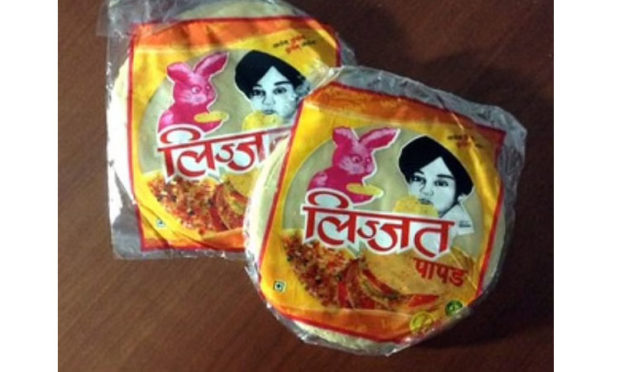

Team Udayavani, Jun 27, 2021, 12:37 PM IST

Kharram Khurram Khurram Kharram went on to become the most catchy jingle back in the 90s featuring a muppet bunny. The jngle is a mere speck when compared to the history of the company that the ad was created for: Shri Mahila Griha Udyog Lijjat Papad, popularly known as ‘Lijjat’.
Lijjat Papad, one of India’s oldest co-operatives supporting women is a multi-million-dollar venture founded by seven women in Mumbai in 1959 with a capital of Rs.80. According to a report by Femina, the brand grew exponentially, to a business worth Rs 1,600 crores, making it a household name.
Back in the 1950s, in order to to create a sustainable livelihood using the only skill they had– cooking, seven Gujarati women from Bombay ventured into the business of making papad.
Jaswantiben Jamnadas Popat, the founder of Lijjat Papad, now Padma Shri Award winner, borrowed Rs 80 from Chhaganlal Karamsi Parekh, a member of the Servants of India Society and a social worker.
The other women who helped Popat begin the business are Parvatiben Ramdas Thodani, Ujamben Narandas Kundlia, Banuben Tanna, Laguben Amritlal Gokani, and Jayaben Vithalani.
Gradually the small business turned into a large cottage industry and today Lijjat Papad has over 60 branches and employs 42,000 women.
The papad is sold all over the country as well as exported to other countries including England, the USA, Singapore, Thailand, and the Netherlands.
The brand expanded as a cooperative system and initially even younger girls were allowed to join. It was later that the age of eighteen was fixed as the minimum age of entry. Lijjat Papad is one of the world’s oldest co-operatives to support women through employment opportunities. The brand delivers quality products at reasonable prices to have a solid distribution network. It believes in the philosophy of sarvodaya (the economic and social development of a community as a whole) and collective ownership.
The brand’s annual sale in the first year was Rs. 6196 and the broken papads were distributed among neighbours.
‘Lijjat’ means tasty in Gujarati. Initially, the company was named Shri Mahila Gruha Udyog Lijjat Papad, which was renamed as Lijjat Papad in 1962.
After the enormous success with papads, Lijjat began producing other products like khakhra, masala, vadi, wheat atta, and bakery products. In the 1970s, Lijjat set up flour mills, printing division, and polypropylene packing division. The group also initiated some unsuccessful ventures such as cottage leather, matches, and agarbattis (incense sticks).
The secret behind the papad is taste and consistency. As the taste of raw materials differ in every state, owing to weather conditions, topography, water quality, etc, all raw materials are purchased from one place and distributed to all branches, making sure the taste is the same. Hence the final product is consistent, irrespective of the region.
Lijjat’s success story is now all set to play out in a movie directed by Ashutosh Gowarikar.
Udayavani is now on Telegram. Click here to join our channel and stay updated with the latest news.




The Return of Trump: A Blueprint for Economic & Geopolitical Transformation


Dip at Sangam, ‘yagya’, attending to pilgrims: A day inside ‘akhadas’ at Maha Kumbh


Behind the Lens: The Rational and Ethical Considerations in Photojournalism


From Cariappa to Nag Mk-2 : India’s Army Celebrates Its 77 Years of Strength


Cyber Crime: Desire – The Root of Sorrow!


KL Rahul to miss Agarwal-led Karnataka’s Ranji game against Punjab


‘IITian Baba’ banned from Juna Akhara camp in Maha Kumbh for ‘abusing’ guru


RG Kar verdict unsatisfactory, unacceptable: Doctors


MUDA case: ED’s statement issued at behest of BJP, says Siddaramaiah


Over 5,000 artistes representing over 45 dance forms to perform during R-Day parade
You seem to have an Ad Blocker on.
To continue reading, please turn it off or whitelist Udayavani.